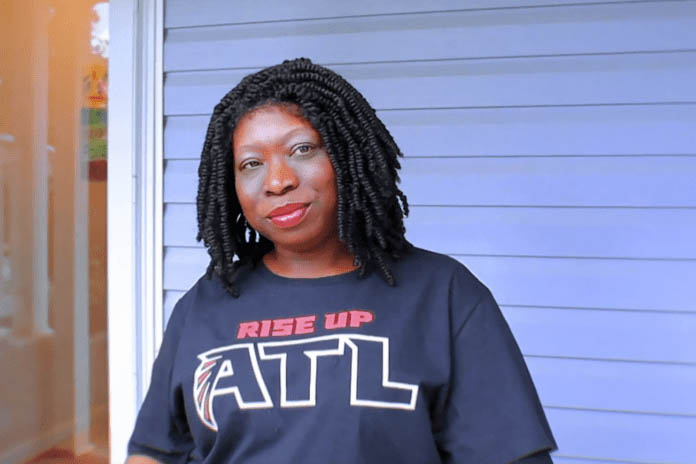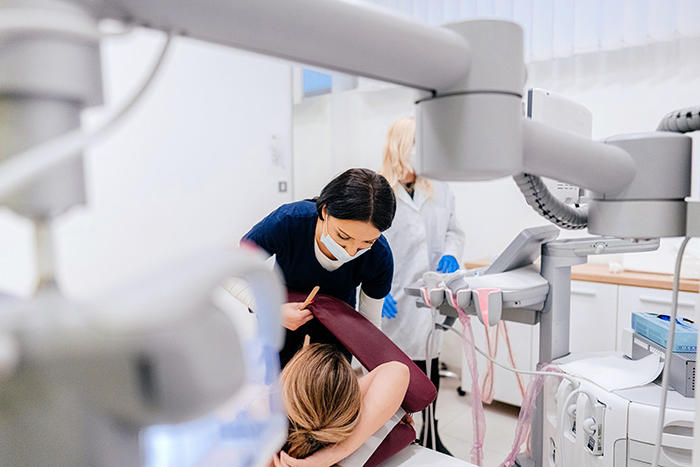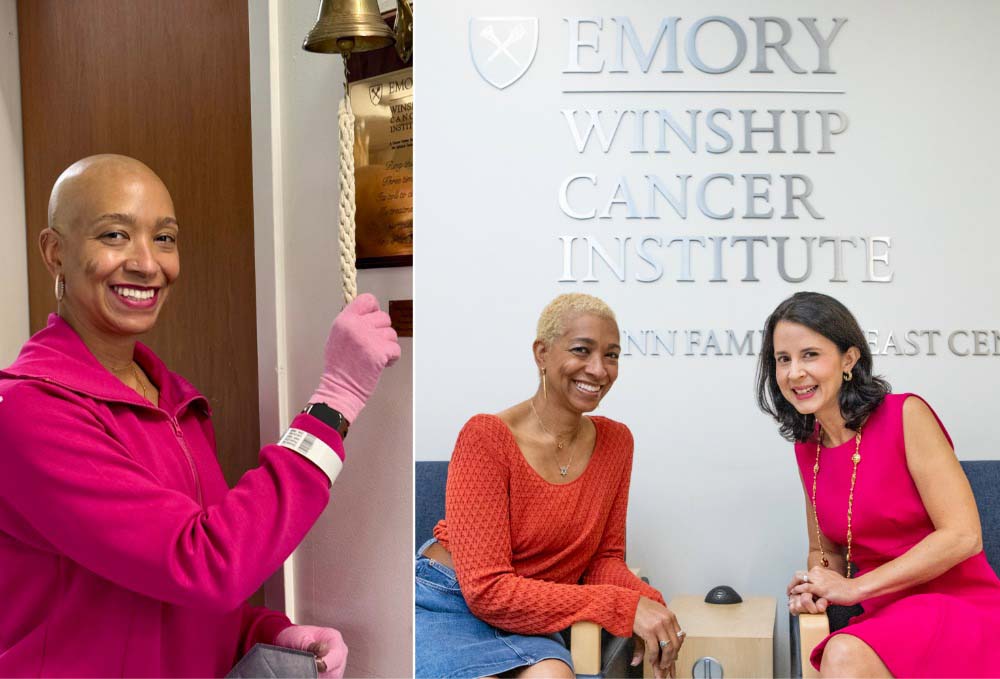Former Atlanta TV news reporter Melissa Stern first felt a lump in her right breast around August 2019. Family members all confirmed that it was something she should have checked out, so she made an appointment with the gynecologist she was seeing prior to beginning care at Emory Healthcare. The doctor told her that since she was so young and had no family history, it was “probably nothing.”
The lump still hadn’t gone away several months later. “It was bothering me, and I’m very in tune with my body,” says Melissa. “So I went and got it checked out.” She proactively went for a mammogram and ultrasound. Everything “came back abnormal,” Melissa says. The radiologist asked how old she was—she was about to turn 31—and recommended she get a biopsy.
Early detection of breast cancer can save lives. When Melissa discovered a new lump, consulting her healthcare provider was the right step for her to take. Typically, patients like Melissa would then be referred for a diagnostic mammogram, which is used to check for breast cancer after a lump or other sign or symptom has been found. Most of the time, these suspicious areas don’t turn out to be cancer, but the only way to know for sure is through follow-up tests. You can read more about how breast cancer is diagnosed at Emory Breast Imaging Center at winshipcancer.emory.edu.
On February 26, 2020, after having the biopsy, Melissa got a phone call no one ever wants to receive. “I’ll never forget,” she says. They told her, “You have invasive ductal carcinoma.” The cancer was stage 2, which means that the tumor in the breast measures 2 to 5 centimeters in diameter or cancerous cells have spread to the lymph nodes in the underarm area.
Stage 2 breast cancers are curable with a combination of treatments, which in Melissa’s case consisted of surgery, local and systemic chemotherapy, radiation therapy, and hormonal therapy. Breast cancer is the most common cancer in women in the United States, except for skin cancers, accounting for about 30% (or 1 in 3) of all new female cancers each year. The American Cancer Society estimates that in 2023, about 297,790 new cases of invasive breast cancer will be diagnosed in women—including about 55,720 new cases of ductal carcinoma in situ (DCIS). About 43,700 women will die this year from breast cancer. However, the five-year survival rate for stage 2 breast cancer is 93% for women who have completed treatment.
 Melissa waited about a month to begin chemotherapy because she “had a million things to do,” including going to a lot of doctor’s appointments, filling out forms and freezing her eggs to ensure that she and her then-boyfriend, Jordan, could eventually have the children they wanted.
Melissa waited about a month to begin chemotherapy because she “had a million things to do,” including going to a lot of doctor’s appointments, filling out forms and freezing her eggs to ensure that she and her then-boyfriend, Jordan, could eventually have the children they wanted.
When she went to Winship Cancer Institute of Emory University for her first infusion on March 31, 2020, early in the COVID-19 pandemic, people were starting to wear face masks and hospitals were forced to restrict visitors. This meant, says Melissa, “I had to start going to these appointments, and going through all of this stuff that was unknown to me, by myself.”
Melissa’s family was as supportive as they could be from Florida while she was in Atlanta. Because of COVID-19 precautions, her physician father said they would put her at more risk by coming to see her than by supporting her from afar. Fortunately, the hospital visitor policy did allow people undergoing chemotherapy to have one guest. So Jordan was allowed to accompany her, but only for her infusions. For all the other appointments—such as when she was freezing her eggs or undergoing radiation—nobody was allowed to go with her. “I had a double mastectomy,” says Melissa, “and I had to go in by myself.”



 The night before Melissa was going to start radiation, Jordan suggested they go out for dinner on the rooftop of Ponce City Market in Atlanta. He ushered her to the side where private events are held. Their song was playing and there were pictures and roses. “And then I got down on one knee and proposed,” Jordan recalls. “A lot of my speech in the proposal had to do with going through this journey with Melissa.”
The night before Melissa was going to start radiation, Jordan suggested they go out for dinner on the rooftop of Ponce City Market in Atlanta. He ushered her to the side where private events are held. Their song was playing and there were pictures and roses. “And then I got down on one knee and proposed,” Jordan recalls. “A lot of my speech in the proposal had to do with going through this journey with Melissa.”

